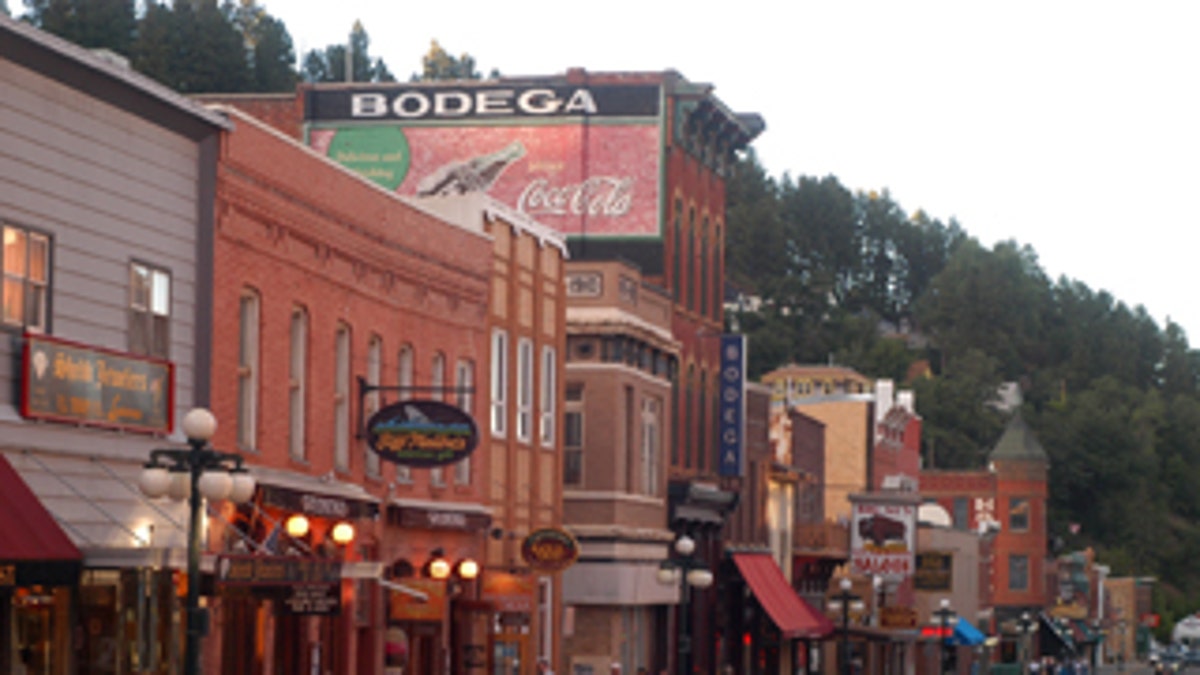
Legalized gambling began in Deadwood on Nov. 1, 1989, when an actor portraying Wild Bill Hickok, accompanied by a woman portraying Calamity Jane, shot a revolver into the air.
This month the historic town celebrates not just 20 years of legalized gambling, but also the economic rejuvenation that has come along with it.
Before voters approved the change in the state constitution that allowed casinos to open in Deadwood, buildings around town were crumbling and businesses were dying. Then most of Main Street was converted to casinos. Real estate started to sell for far more than anyone had imagined.
The entertainment industry noticed. Actor Kevin Costner bought a casino after making his hit movie, "Dances with Wolves," in South Dakota. HBO created an acclaimed series, "Deadwood," that ran for three seasons and capitalized on the town's notorious past. Characters in the show included Hickok, a real gunfighter who was killed in Deadwood during a poker game in 1876.
Today, Deadwood has about three dozen casinos, 3,500 slots machines and about 100 card tables, according to the state Gaming Commission. Over the years, the casino industry brought 2,000 jobs, millions of dollars in profits, and money for extensive renovations to Deadwood's buildings and infrastructure.
The town, nestled in a canyon between pine-covered mountains, is close enough for visitors to Mount Rushmore, the Badlands and Sturgis to include on their itinerary, so it's benefitted from regional tourism too. Forbes Traveler magazine recently put Deadwood on its list of "America's Prettiest Towns" in a feature posted on its Web site, citing the historic architecture and picturesque Black Hills setting.
The latest new local attraction is a new $47 million resort, The Lodge at Deadwood. It includes a four-story hotel, convention center, water park, restaurant, bar and casino. The hotel, water park and bar opened Nov. 6, and the casino and restaurant will be ready in early December.
Still, Deadwood has to keep an eye on the competition for gamblers. Deadwood was just the third place in the nation to legalize gambling back in 1989. Nevada did so in 1931 and Atlantic City casinos opened in 1978. But now most states have casinos, including Colorado, where casinos were allowed to add craps and roulette in July.
Deadwood's casinos are only allowed to offer slot machines and card games, including blackjack and poker, and bets in South Dakota may not exceed $100.
State Sen. Tom Nelson, a member of the committee that won approval for legalized gambling two decades ago, said the gambling industry may eventually ask to add craps and roulette in Deadwood. But he said supporters probably won't push the idea in next year's legislative session, because lawmakers will work mostly on balancing the state budget while revenues are declining.
"They might ask the Legislature to put it on the general election ballot, but I think that might be a little premature," said Nelson, general manager of the Gold Dust casino and mayor of the nearby city of Lead.
Nelson also said he doubts any effort will be made to change the bet limit.
Ken Gienger, president of the Deadwood Gaming Association and general manager of the Celebrity Hotel, says the industry is not yet ready to ask state voters for changes.
"We've had discussions, but nothing definitive," said
Meanwhile, Deadwood is working on attracting more visitors by offering music acts and other entertainment, Nelson said. The new convention center and the conversion of an old building into an entertainment venue will allow events during the colder months. The town now has music concerts outdoors in the summer.
"I think that's kind of the next evolution, toward an even more broad-based entertainment venue," Nelson said.
Through June 30, the end of the last budget year, gamblers had bet more than $12.7 billion in the Deadwood casinos. They won back nearly $11.6 billion, which left more than $1.1 billion in gross revenue for the casinos, said Larry Eliason, executive director of the South Dakota Gaming Commission.
The casinos over two decades paid $208 million in taxes and fees. Some of those taxes went to state coffers, while the city of Deadwood got more than $123 million for local improvements.
Nelson said Deadwood used to attract visitors between Memorial Day and Labor Day and sometimes for ski season if enough snow fell. The Mystic Miner Ski Resort at Deer Mountain and the Terry Peak Ski Area are nearby, along with 325 miles of snowmobile trails in the Black Hills.
But Nelson says the addition of gambling has brought people to town year-round.
"It's been a fun ride," Nelson said.
